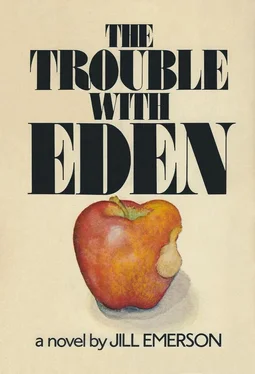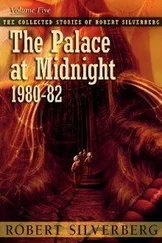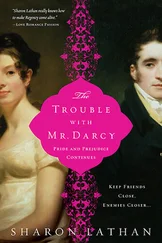“The prodigal returns,” he said. “I hope Aunt Elizabeth is feeling better.”
“She’s going to be all right.”
“It must be quite a change for her, though.” Bert looked puzzled. “A whole identity crisis,” he explained. “Her name was Aunt Harriet the last time we discussed her.”
“That’s sneaky, Warren.”
“That’s sneaky? Physician, heal thyself.”
“I was going to tell you. I need a drink.”
“You can fill my glass while you’re at it. Unless they taught you at women’s lib to stop waiting on men.”
“You don’t have to be a bitch, Warren.”
“I know. We can be civilized.”
“It’s not what you think.”
“Oh?”
“Not entirely what you think.”
Warren let him tell it. A week ago an agent from New York had heard him play at the Inn. The agent had told him he was wasting himself, that he could be playing decent clubs in New York, making better money and being heard by influential people. And of course Bert had given him an unequivocal no at first, but after some thought he had realized that his career was vitally important to him and that he did not want to spend the rest of his life playing music for Bucks County drunks to talk over.
“I gather there’s a qualitative difference between Bucks County drunks and Manhattan drunks,” Warren said. “No, don’t let me interrupt you. Carry on.”
So he had called the agent, and the agent had arranged auditions Friday afternoon and evening and this afternoon, and he already had one booking and the promise of a second. And he knew how Warren felt about New York, and of course he couldn’t possibly commute, and their relationship had about run its course anyway, and—
“So it’s not another man,” Warren said.
“That’s what I’m trying to tell you.”
“You didn’t ball anybody in New York.”
“No, I didn’t.”
“I assume your new agent is a woman.”
“No, a man. What has that got—”
“A heterosexual man, however.”
“Cut the shit, will you. Warren?”
He stared moodily into his glass. Without looking up, he said, “When are you moving?”
“I was thinking of leaving tomorrow.”
“Why, that’s a rush engagement, isn’t it? Audition one day and start work the next. Your agent’s a whiz.”
“I have to get an apartment, I have to get settled.”
“One must get settled. You’ll be leaving your present employers high and dry, won’t you? Maybe you could call them now and let them know.”
“Well, I—”
“Because they won’t be open tomorrow.”
“Goddamn you, Warren.”
“When did you give notice? The night your nelly agent propositioned you?”
“The next day.”
“That’s splendid. And I have a splendid idea. Why don’t you pack a few things and fly away? I’ll ship the rest as soon as I have an address for you. Or do you already have an address?”
“No, I’ll be living alone.”
“Poor thing. Is there a place you can stay tonight?”
“You cocksucker. Yes, there’s a place where I can stay tonight. And I don’t have to pack a few things because I had the foresight to pack a few things yesterday because it occurred to me that you might pull this sort of shit. It’s just as easy for things to end pleasantly, Warren, but you never forget you’re an actor. You always have to play to an audience even when you’re all by yourself in an empty theater.”
“Wait a minute.”
“What for?”
“For nothing, I suppose. I don’t know. I’m sorry, Bert. It hurts a bit so I try to hurt back. Childish.”
“I’m sorry, too.”
“I’ll tell you what. Let’s neither of us be sorry. It was fun while it lasted, and I’ll always settle for that as an epitaph. For a life or for a love affair. It was fun while it lasted. There’s just one problem. Where do you drop the curtain?”
“You just lost me.”
“We’ve already established that, silly. No, it goes back to what you said about my weakness for the dramatic. The charge is true enough. But don’t you see, it’s so much more awkward to part on good terms. Neither party ever knows when to get off the stage. Much simpler with a lot of door slamming and name calling. Still, we ought to be able to work something out. I think I have it. You play the piano. And sing, I do want to hear you sing. I’ll miss that. You play and sing, and I’ll sit in a dark corner listening to you. Before you quite finish I’ll have gone upstairs, and when you finish you may steal off into the night.”
Bert started to say something, then changed his mind. He seated himself at the piano and studied the keys. Softly he said, “What would you like to hear?”
“Oh, are you taking requests tonight?”
“Just so long as it’s not ‘Melancholy Baby.’”
“Lord. No, you’re better far than I at matching songs with moods. Something that achieves sorrow without reaching slush.”
“Smiling through tears? That effect?”
“Winking through tears.”
He knew it from the first bars of the introduction and thought that Bert had chosen wisely. “Just One of Those Things.” Yes, that was right, every line in it was right. It described a romance that burned itself out quickly, and theirs had been neither that intense nor that brief, and yet the song was singularly appropriate.
As the bridge ended, he got to his feet and slipped silently from the room. He waited out of sight on the stairs and listened to the song’s last verse:
So goodbye, love, and amen
Here’s hoping we meet now and then
It was great fun
But it was just one of those things.
He stood motionless on the staircase until he heard the front door drawn quietly shut. The Volkswagen engine caught, and he listened to Bert driving off. Then he climbed the stairs and went to his room.
He had wanted to make sure Bert did not stay the night. Had he done so, he would have learned that Anne and Robin were there. While his knowledge would have been dangerous only in the sense that any unnecessary complication was a hazard, that had been reason enough to make the break an immediate one.
And so he had pretended pain and bitterness that he had not felt at all. It was not a lack of feeling for Bert, he knew. It was simply that he was under too much other pressure to feel much.
Of course he had shed tears during the song. A statue could not have done less. It was fun while it lasted; and it was just one of those things. They both did nicely as epitaphs. For a love affair or for a life.
Hugh sat looking at the typewriter. There was only one more page to write, and he knew precisely what it would say. He had written it dozens of times in his head in the course of the past few months, had mentally edited and shaped it over and over. Now all he had to do was put the words on the page.
When he began to type, the words came slowly. He measured each phrase. He wanted to get it just right, and at the same time he was reluctant to write the words at all, because once they were written the book would be finished. He wanted to be finished and yet he did not want to be finished. He had thought in the past that it was not unlike sex — you wanted to come, but you didn’t want to come right away. He wrote:
And so it was over. A man had died, and living men had opened the earth for him and closed it over him. A life which had begun at one specific point in time had ended now at another specific point in time. Lives, like books, have beginnings and endings, first chapters and last chapters.
But the endings of human lives lack the precision of the endings of books. If death is a last chapter, there is still an epilogue to come.
For even physical death is a gradual process. The body itself dies piecemeal. Hair and fingernails continue to grow for a time, their functions like the reflexive twitching of a headless snake. Until they too are done.
Читать дальше












